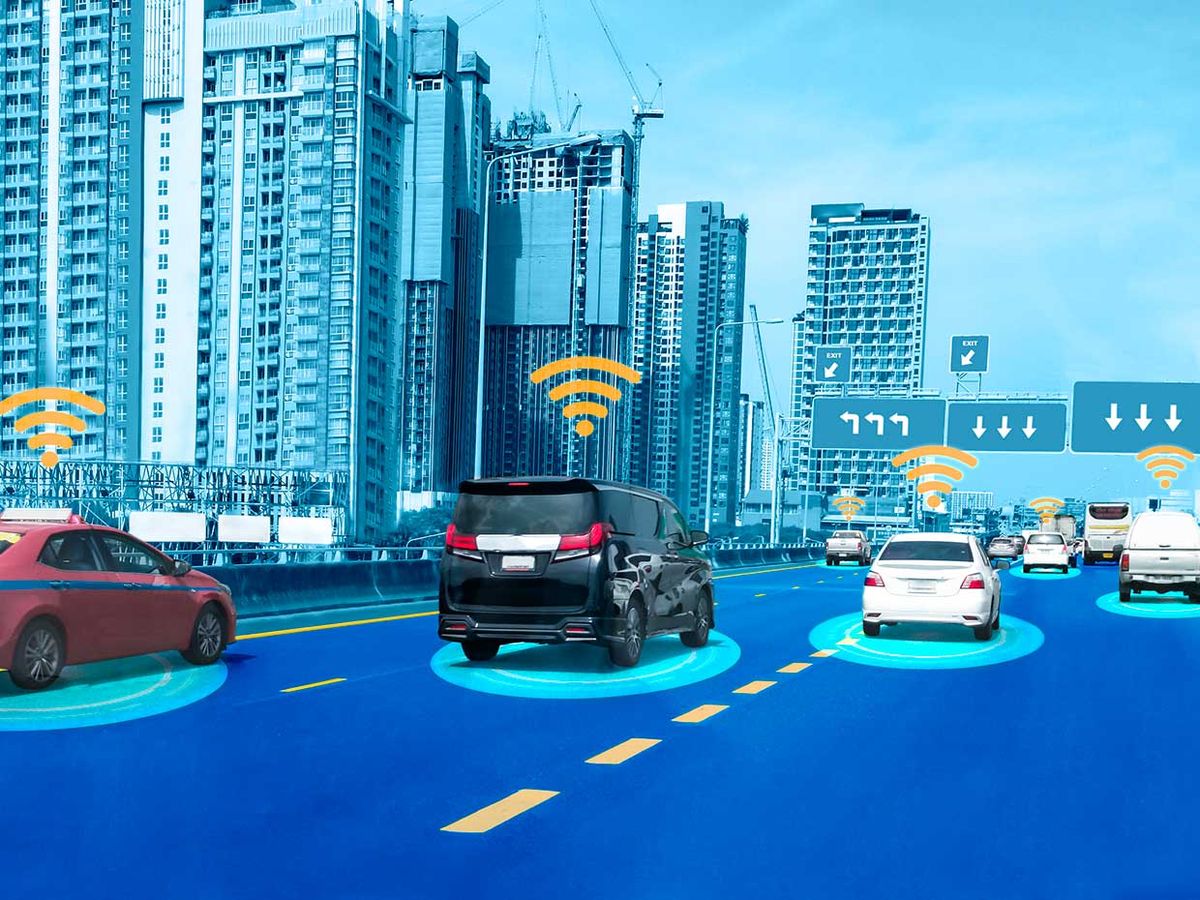THE INSTITUTE Autonomous vehicles on the road today use sensors, complex algorithms, and tools such as GPS, lidar, and radar to detect their surroundings and communicate with one another. The vehicles share sensitive data to help decrease traffic and increase safety, according to an article on security issues in vehicular networks from the IEEE Xplore Digital Library. Although having interconnected vehicles can help improve traffic conditions, security and privacy measures are needed to protect the vehicles from cyberattacks.
Researchers Charlie Miller and Chris Valasek ethically hacked a Level 2 autonomous Jeep Cherokee while it was on the highway. They wanted to see what the consequences could be. They were able to stop the vehicle on the road, according to a Towards Data Science article, and they could control the vehicle's steering wheel and velocity.
If autonomous vehicles are to become widely adopted, their safety must be ensured. The mantra of a good engineer in the field is: Cybersecurity in automotive technology is not a product but a process. It is more than designing strong security and safety features, to actually understand the Intelligent vehicles development, collection, analysis, interpretation of connected vehicles data and its protection using blockchain technology to ultimately secure the autonomous vehicles.
It involves designing a system so all the security measures work together.
The five-course IEEE program Automotive Cyber Security: Protecting the Vehicular Network aims to help. It covers solutions and requirements for not only intelligent vehicles but also the infrastructure of an intelligent transportation system (ITS).
“Advanced technology-enabled vehicles are a good thing, but protecting and controlling them with their advancement are much better," says Madhusudan Singh, lead author of program.
“It is critical for professionals working with interconnected vehicles to be able to identify weaknesses and address them," says Ingrid Donnelly, product manager for IEEE Educational Activities. “This course provides the knowledge needed to do so successfully."
Here are three topics the course covers.
- Automotive cybersecurity. Those who work with autonomous vehicles must be able to analyze attacks, anticipate future threats, understand how to minimize risk, and develop possible solutions. The course goes over cybersecurity basics; the five fundamental areas of technology used by connected vehicles; and the wireless communication methods, such as 5G and Wi-Fi, on which the vehicles rely.
- Intelligent transportation systems. ITSs are likely to be at the heart of autonomous travel. The systems include automated traffic-signal controls, electronic toll payments, and traveler information services. They also allow vehicles to communicate with one another. The systems are expected to improve passenger safety as well. Those taking the program will learn how to identify potential attacks on ITS technologies and to better understand the engineering requirements and specifications needed to secure the systems.
- Blockchain. Conventional security methods are unable to provide secure vehicle-to-vehicle communication and cannot handle the vast amounts of data the vehicles produce. The educational program will show attendees how blockchain technology can be used to do so. The secure, decentralized, and distributed ledger can increase the number of passengers traveling, the amount of goods shipped, and the average vehicle speed while decreasing congestion, accidents, and the overall carbon footprint.
Individuals who want to take the program can earn up to 0.5 continuing-education units or five professional-development hour credits. Visit the IEEE Learning Network to see member and nonmember pricing.
Institutions interested in the program can contact an IEEE account specialist to learn more.
Johanna Perez is the digital marketing specialist for IEEE Educational Activities.
IEEE membership offers a wide range of benefits and opportunities for those who share a common interest in technology. If you are not already a member, consider joining IEEE and becoming part of a worldwide network of more than 400,000 students and professionals.



